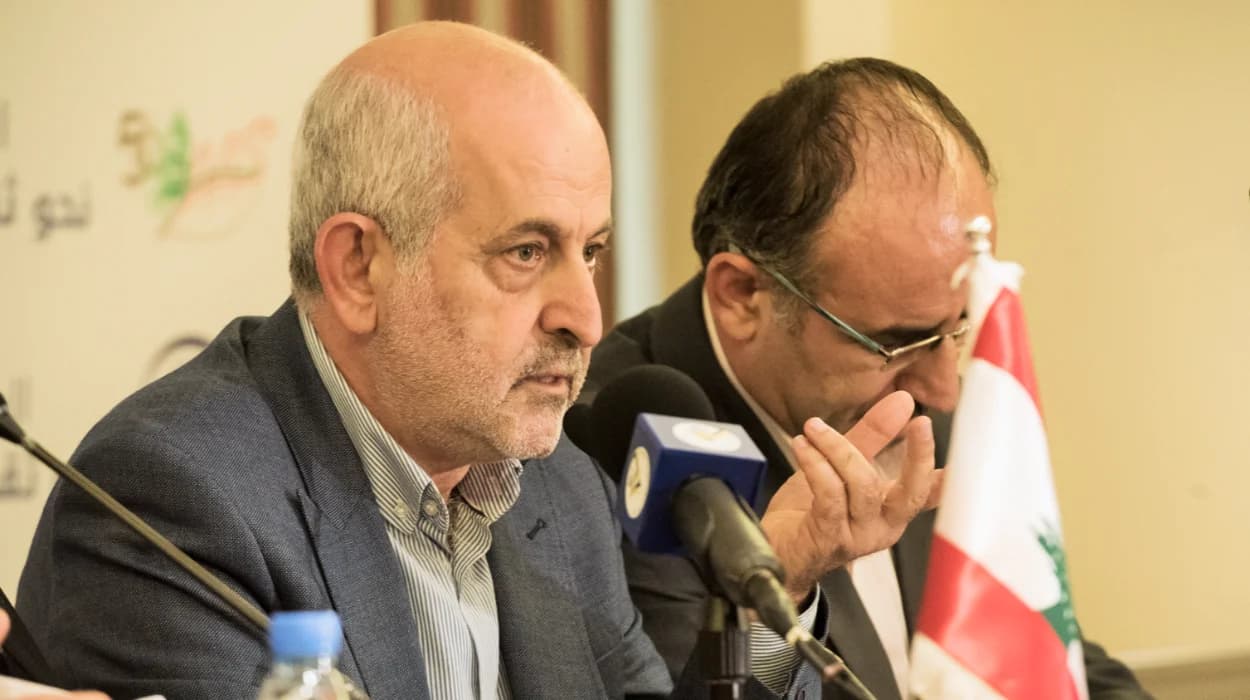Talal Atrissi, a Lebanese University professor, emphasises
that contemporary unity across various groups and political currents in Lebanon
converges solely on the issue of Palestine. This convergence reflects decades
of steadfast support for Palestinian resistance and the broader cause of
Palestinian liberation amid regional tensions and international dynamics.
Lebanon’s Central Focus: Palestine
As reported by Talal Atrissi, a professor at the Lebanese
University’s Faculty of Humanities and Social Sciences, today's political and
social convergence in Lebanon revolves exclusively around Palestine. He
describes this focal point as transcending internal Lebanese divisions, uniting
different factions around the Palestinian issue.
Historical and Intellectual Roots of Palestinian Support in Lebanon
Atrissi, speaking to the Tehran Times, outlined that
Palestine holds a fixed and enduring significance in Shi’a Islamic thought,
particularly among key Shi’a leaders who consistently advocated for Palestinian
liberation and supported resistance movements. He highlighted the contributions
of Imam Musa al-Sadr and Imam Khomeini, who not only intellectually championed
the Palestinian cause but also actively urged practical support, including
arming Palestinian groups.
Atrissi stated,
"Imam Musa al-Sadr in Lebanon always used to say, 'I support the Palestinian cause, because the resistance is right, and Israel must be wiped out. There can be no reconciliation with it, and Palestine must be liberated.'"
He also noted Imam Khomeini’s fatwa before
the 1979 Islamic Revolution, commanding Muslims to financially support
Palestinian resistance.
Contemporary Palestinian Reality and Lebanese Arab Position
The professor stressed the resilience of the Palestinian
people and the ongoing resistance movement inside Palestine. Despite diplomatic
efforts and negotiations that have lasted over two decades, he described the
political path toward resolution as a dead end, notably criticizing the Arab
League and several Arab states for their softened stance on Israel.
“We see some Arab countries label Hamas and Hezbollah as terrorist organisations, whereas they are resistance movements opposing the Israeli occupation,”
Atrissi added, marking a clear divide in regional
perspectives towards the conflict.
Lebanon's Complex Political Environment Regarding Palestine
Lebanon’s attitude towards Palestine is complex and
multifaceted, shaped by internal sectarian and political divisions. As
indicated by an analysis from the Institute for Palestine Studies, Lebanon
lacks a unified national policy on the Palestine issue, reflecting the broader
intra-Lebanese political fractures and diverse party positions.
The southern region of Lebanon, particularly impacted by
Israeli military actions, is home to Hezbollah, a significant armed Shi’a
faction. Hezbollah's involvement in Palestinian solidarity and confrontation
with Israeli forces in areas like the Shib`a farms underscores the intertwined
nature of Lebanese and Palestinian struggles.
Official Lebanese statements from the Speaker of Parliament,
Prime Minister, and Foreign Minister advocate for calm and stability but also
express solidarity with the Palestinian cause. The Lebanese Foreign Minister,
after diplomatic meetings, urged an end to provocations along the southern
Lebanese border, highlighting incidents involving civilians, journalists, and
UN peacekeeping forces.
Divergent Lebanese Political Stances
The Lebanese political landscape shows divisions in how to
approach the Israel-Palestine conflict. Nabih Berri, Speaker of Parliament,
called on Islamic countries to sever agreements with Israel and articulated the
Palestinian struggle as a collective duty for the entire Islamic nation, while
Israeli Prime Minister Netanyahu’s threats reflect potential escalation in the
north.
Former Lebanese President Michel Aoun expressed caution,
indicating that Lebanon is not formally bound to Gaza by a defence treaty and
warned that entering the conflict could increase rather than lessen danger for
Lebanon.
International and Regional Diplomatic Engagements
In the wake of escalations related to the Gaza conflict,
Lebanon has seen intensified diplomatic activity. Visits from foreign ministers
of the UK, France, Spain, Turkey, Iran, and Hungary, alongside US envoy Amos
Hochstein, signal high international stakes in Lebanon’s stability.
Lebanese officials emphasize the importance of resolving
border disputes, including the contentious Shib`a farms area, and stress that
security along the Blue Line should not simply be considered Israel’s frontier
but a line of withdrawal.
Historical Context of Lebanese Shia-Palestinian Relations
Research from Umam Documentation and Research noted the
historic partnership between the Lebanese Shia community and Palestinian
factions. After the late 1970s closures of Egyptian and Syrian fronts with
Israel, southern Lebanon became a critical base for Palestinian armed struggle,
tying Lebanese Shia militant and political groups like Hezbollah and the Amal
Movement closely to the Palestinian cause.
The historical memory and ongoing political narrative within
these groups portray themselves as the main defenders of Palestinians in
Lebanon and key opponents of the Israeli occupation
